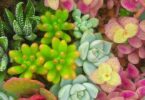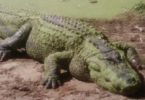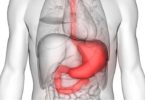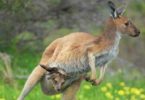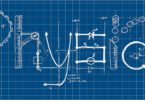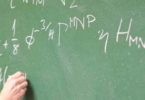Quiz on Structure and Function of Animal Tissue:
Which one of the following is not essentially a part of nervous system
(a) Cyton
(b) Axon
(c) Myelinated
(d) Intermedin
“Graveyard of RBCs” is
(a) Liver
(b) Spleen
(c) Kidney
(d) All the above
Related: Physics EAMCET model question papers
The skeletal tissue consists of organic matrix called as
(a) Hyaline
(b) Chondrin
(c) Osteoblast
(d) Chondroblast
The word epithelium was coined by
(a) Malpighii
(b) Ruysch
(c) Bichat
(d) None
Who propounded the “Sliding filament theory” for muscles contraction
(a) Cori
(b) H.E. Huxley
(c) A.F. Huxley
(d) H.E. Huxley and A.F. Huxley
An osteon contains
(a) One Haversian canal and Haversian lamellae
(b) Haversian canal and Volkmman’s canal
(c) Haversian canal and circumferential lamellae
(d) Haversian canal, Haversial lamellae and osteoblast layer
Which type of neurons are found in the retina
(a) Unipolar
(b) Pseudo–unipolar
(c) Multipolar
(d) Bipolar
Related: ChemistryCOMEDK UGET practice question papers
Which of the following is a transparent tissue
(a) Tendon
(b) Ligament
(c) Fibrous cartilage
(d) Hyaline cartilage
Which among the following is the strongest cartilage
(a) Hyaline cartilage
(b) Elastic cartilage
(c) White fibro cartilage
(d) Violet fibro cartilage
Epithelial tissue performs the following functions
(a) Protection, secretion, absorption, respiration
(b) Protection, secretion, sensation, absorption
(c) Protection, secretion, absorption, digestion
(d) None of these
Average life span of human R.B.C. is
(a) 100 days
(b) 90 days
(c) 120 days
(d) None
Related: Trigonometry practice problems
The muscles involved in the movement of the arm are
(a) Unstriped
(b) Striped
(c) Cardiac
(d) Alar
Formation of cartilage is known as
(a) Diapedesis
(b) Chondrogenesis
(c) Haemopoiesis
(d) Ossification
Bone marrow is made up of
(a) Muscular fibre and fatty tissue
(b) Fatty tissue and areolar tissue
(c) Fatty tissue and cartilage
(d) Fatty tissue, areolar tissue and blood vessel
Pavement epithelium is another name for
(a) Cuboidal epithelium
(b) Ciliated epithelium
(c) Simple squamous epithelium
(d) Stratified epithelium
Blood is formed of
(a) Plasma and bone marrow cells
(b) Plasma and white and red blood cells
(c) Plasma and white blood cells
(d) Plasma and red blood cells
Related: Fluid mechanics mcq with answers
Striped muscles have
(a) One nucleus
(b) Many nuclei
(c) Two nuclei
(d) No nuclei
The chemical which causes damage of WBC, bone marrow, spleen, lymph nodes and lungs is
(a) Iodine –131
(b) Calcium
(c) Strontium –90
(d) Iodine –127
Inner surface of fallopian tubes, bronchi and bronchioles are lined by
(a) Squamous epithelium
(b) Ciliated epithelium
(c) Columnar epithelium
(d) Cubical epithelium
Intervertebral disc is made up of
(a) Elastic cartilage
(b) Fibrous cartilage
(c) Calcified cartilage
(d) Hyaline cartilage
The neurilemma surrounds the
(a) Axis cylinder
(b) Cell body
(c) Myelin sheath
(d) Endoneurium
Schneiderian membrane is found in
(a) Nasal passage
(b) Trachea
(c) Bowman’s capsule
(d) Loop of Henle
Related: Maths BITSAT important questions
Sarcoplasm is the
(a) Cytoplasm of nerve fibres
(b) Cytoplasm of muscle fibres
(c) Unit of muscle contraction
(d) None of the above
Which of the following tissue is called as “homeostatic reservoir”
(a) Cartilage
(b) Bone
(c) Calcified cartilage
(d) All the above
Stratified squamous epithelium is found in
(a) Trachea
(b) Epidermis
(c) Mouth cavity (buccal)
(d) Lining of blood vessels
Where would you find mast cells
(a) Adipose tissue
(b) Areolar tissue
(c) Yellow fibrous tissue
(d) White fibrous tissue
Myoglobin is found in
(a) Muscles
(b) Blood
(c) Liver
(d) Spleen
Related: Thermodynamics NEET questions
Brush bordered epithelium is found in
(a) Fallopian tube
(b) Small intestine
(c) Stomach
(d) Trachea
Adipose tissue is found in mammals
(a) In epidermis
(b) In muscles
(c) In dermis
(d) Below dermis
Which of the following is most widely distributed in the body forming major part
(a) Connective tissue
(b) Epithelial tissue
(c) Muscular tissue
(d) Nervous tissue
The tissue having similar properties as of protoplasm is
(a) Epithelial tissue
(b) Connective tissue
(c) Nervous tissue
(d) Muscular tissue
The epithelium in the bronchioles is
(a) Pseudostratified and columnar
(b) Squamous and sensory
(c) Pseudostratified and sensory
(d) Cuboidal and columnar
The life span of human WBC is approximately
(a) Less than 10 days
(b) Between 20 to 30 days
(c) Between 2 to 3 months
(d) More than 4 months
Related: Redox reaction quiz
Collagen fibres of connective tissue are
(a) White
(b) Yellow
(c) Colourless
(d) Red
Glisson’s capsule is a delicate connective tissue capsule covering the
(a) Spleen
(b) Liver
(c) Kidney
(d) Gall bladder
Titan filament connects
(a) Actin filaments to Z-line
(b) Myosin filaments to Z-line
(c) Actin filaments to myosin filaments
(d) Myosin filaments to M-line
Healing process is helped by
(a) Heparin
(b) Histamine
(c) Serotonin
(d) None of the above
Mark the odd one
(a) Monocytes
(b) Lymphocyte
(c) Neutrophils
(d) Erythrocytes
Related: Ohm law problems and solutions
Myelin sheath is a layer covering
(a) A nerve fibre in an insect
(b) A chick embryo
(c) A muscle fibre in a vertebrate
(d) A nerve fibre in a vertebrate

